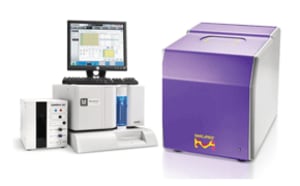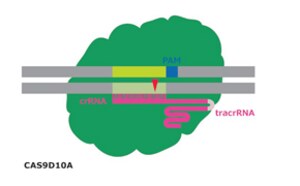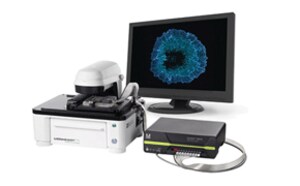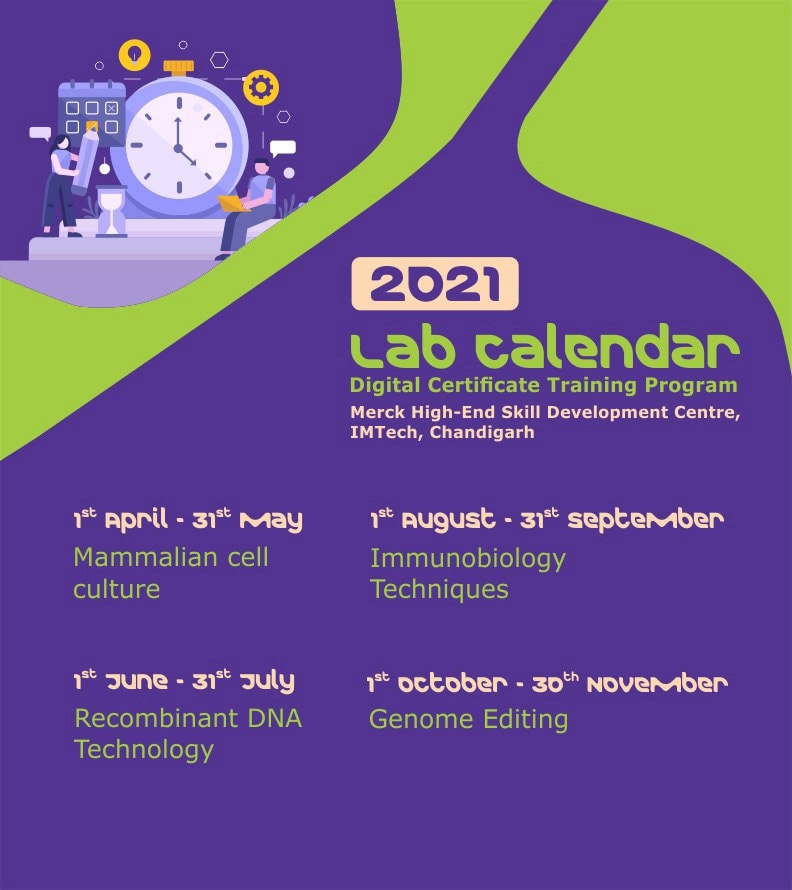Workshop Training and Services
The Merck High-End Skill Development Centre at IMTech, Chandigarh and the Merck Innovation Lab at Banglore are a step towards Merck's vision of supporting, enabling and facilitating life science research in India by providing access to state-of-the-art tools and techniques.
Merck High-End Skill Development Centre at IMTech, Chandigarh
Merck has signed Collaborative Research Agreement with CSIR-IMTech, Chandigarh to set up a Merck High-End Skill Development Centre at CSIR-IMTech, having capabilities to facilitate development and imparting training to scientists, academicians, researchers, students, and others in the field of life sciences. The Development Centre intends to focus on research, development and training in the following areas:
- New Drug Discovery
- Affordable Healthcare
- Fast & Accurate Diagnostics and
- Agriculture Biotechnology
Technological Advancements Offered

LUMINEX 200™ SMCxPRO™

SNAP i.d.® 2.0

CRISPR/CAS9

qPCR
Merck Innovation lab at Bangalore
Advancing your research and pioneering novel discoveries requires innovative products and we invite you to explore our state-of-the-art facility at our Innovation lab in Bangalore which offers following technological advancement

LUMINEX 200™ SMCxPRO™

CellASIC® ONIX2

CRISPR/CAS9

qPCR

SNAP i.d.® 2.0
Write to us at sigma-aldrich_india@merckgroup.com.
Biomarker Assay Services and Support
Do you want to analyse your sample for specific biomarker? Need help in running the experiment?
Write to us at sigma-aldrich_india@merckgroup.com.
Our team of Milliplex® experts will provide you with timely personalized solutions. A strong team of service engineers and application specialists assure our customers of right support. Our team of experts will support you with individual solutions.
For assistance, please provide the following information:
We offer trainings on the following topics
Advanced courses
MAGPIX® & Luminex 200™: The Milliplex MAP® Advantage
Millipore invites you to come and learn about the new MAGPIX® & Luminex 200™ instrument and see how many of the research challenges faced in protein analysis can be overcome when using Milliplex reagents. Topics covered during workshop include:
- Overview & hand-on of MAGPIX® & Luminex 200™ instrumentation
- Introduction to the Milliplex MAG® portfolio.
SMCxPRO™ Immunoassay Instrument
With the SMCxPRO™ platform you can detect extremely low-levels of established disease biomarkers, capturing concentrations down to the femtogram/mL level
Topics covered during workshop include:
- Overview & hand-on of SMCxPRO™ instrumentation
- How the new SMCxPRO™ Immunoassay Platform will benefit your biomarker analysis.
- Accelerating Drug Development & Clinical Validation with Single Molecule Counting
Advances in Genome Editing
This course will provide hands-on training in genome editing in mammalian cells using CRISPR/Cas9 system. Participants will learn design of guide RNA using bioinformatics tools, generation of gene knockouts/knock-ins and target validation.
Currently we offer the following basic courses-
- Secrets of Western Blotting: Proven Strategies to Optimize Your Western Blots
This course is suitable for all researchers and will cover complete hands-on training in western blot techniques-
- Protein Isolation/Quantification/Sample prepration
- SDS-PAGE Membrane transfer (semi dry and wet blot)
- Antibodies selection and optimization
- Western blotting by SNAP.i.d.2.0 – rapid immunodetection in 30 minutes
- Protein detection and visualization
- Western quantification methods
- Membrane stripping and re-probing; membrane storage
- Quantifying gene expression by RT-PCR- planning, analysis and applications
Designing and standardization of RT-PCR experiment is the key to its ability to give accurate results. MIQE (Minimum information for Publication of Quantitative Real Time PCR Experiments) guidelines helps in minimizing errors. In this course, we will go over the principles of qRT-PCR, planning your experiment and how to troubleshoot your results.
- Introduction to sample preparation techniques and principles- MIQE guideline
- Hands-on experience with different sample preparation methods
- Extraction from difficult matrices and small samples
- RNA and DNA quality control
- Automated electrophoresis in silico assay design: design your own assay
- Introduction to qPCR
- Primer and probe design
- Reverse transcription: guidelines and practical hands-on experience with cDNA synthesis
- Real-time quantitative PCR (qPCR) experimental guidelines and hands-on experience in the lab
- Troubleshooting your RT-PCR
Online Training Modules |
|---|
Each training module consists of a 8-week training schedule conducted as two episodes per week for a 1.5-hour/episode of interaction with our expert. This involves lectures, the use of online molecular tools, assignments covering these topics. A one time training fee of INR 8,500 (exclusive of tax) will be charged.
Key highlights of the training
- One to one interaction
- Detailed methodology
- Troubleshooting
- Experimental setup demonstration by videos
- Report preparation
- Presentation by students
- Small batches
- Online Training Certificate

Mammalian Cell Culture Online Training
Cell culture is atechnique in which animal cells are grown outside of their natural environment in laboratory under controlled environments. Cell culture is fundamental to life science research whether your goal is to establish relevant cell models to answer research questions or produce recombinant proteins – growing and maintaining cells in physiological conditions is critical. The current course aims to offer a broad overview of best practices and challenges in cell culture.
Agenda
- Overview of mammalian cell culture
- Aseptic environments & cell culture lab instruments
- Growth media preparation
- Cell revival from storage, Maintenance, counting and passaging cells
- cell preparation for storage
- Cell seeding for experiments
- Cell viability (MTT) assay (Detailed methodology and experimental setup)
- 3D culture: Basics, concepts and detailed methodology
- Types of contamination, and their detection
- Good cell culture practice
Recombinant DNA Technology
Recombinanat DNA technology comprises joining of two DNA molecules outside of an organism followed by expression of recombinanat DNA into an suitable organism.This techniques involves cutting and pasting of gene of interest into suitable vectors followed by transformation of recombinanat vector DNA into appropriate host to obtain the dearibale products (i.e. recombinant proteins). RDT has revolutionized the modern science as many FDA approved protein based therapeutics have been developed by this technique. The current online training aims to offer a broad overview of RDT that are being used in research laboratories for producing recombinanat proteins.
Agenda
- Recombainant DNA Technology- Overview, and applications
- Essential componenets of RDT
- Vectors- types and characterstics
- DNA manipulation enzymes
- Vector DNA Preparation
- Insert DNA Preparartion
- Ligation, Transformation & selection
- Overexpression and production of recombinanat proteins
Immunobiology techniques
Immunobiology techniques comprise immunoassays which are based on antigen-antibody interaction. Since their insception, immunoassays have been instrumental in many pharmaceutical analysis like disease diagnosis, pharmacokinetics, and pharmacodynamics in drug discovery studies. This online training will provide an overview on various immunoassays, their principles and their applications.
Agenda
- Immunoassay-types and appliactions
- Immunodiffusion
- Immunoelectrophoresis
- Immunoblotting (traditional and with SNAP i.d. 2.0)
- Radioimmunoassay
- Enzyme-linked immunosorbent assay (ELISA)
- Immunohistochemistry
Genome Editing
Genome editing, also known as genome engineering, or gene editing, is a technique in which genomic DNA of a living organismcan can be edited. Using genome editing, any DNA fragment can be instered, deleted, and modified or replaced in the genome. Over the last two decades, many tools have been discovered for editing the genome. These advancements make genome editing convenient and fast. The current course aims to offer a broad overview of genome editing technologies particularly CRISPR and RNAi which have revolutionized the science from medicine to agriculture.
Agenda
- Genome editing overview and its applications
- Engineered Nucleases: History, characteristics & mechanism
- CRISPR/Cas9: Discovery, mechanism, and applications
- Designing of guide RNA using online tools
- Genome editing using CRISPR/Cas9: Detailed methodology and experimental setup
- Gene knock out, Gene Knockdown
- RNA Interference, discovery, mechanism and applications
- siRNA, shRNA & miRNA: Characteristics & mechanisms
- Designing siRNA using in silico tools
- miRNA target sites prediction using online tools and browsing of miRbase database
- Gene silencing using siRNA/shRNA: Detailed methodology and experimental setup
To continue reading please sign in or create an account.
Don't Have An Account?